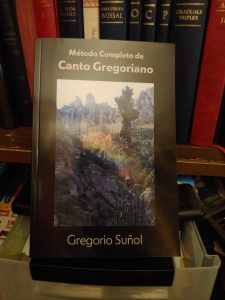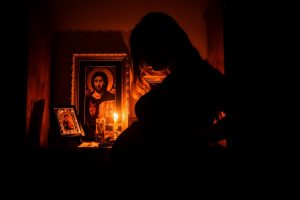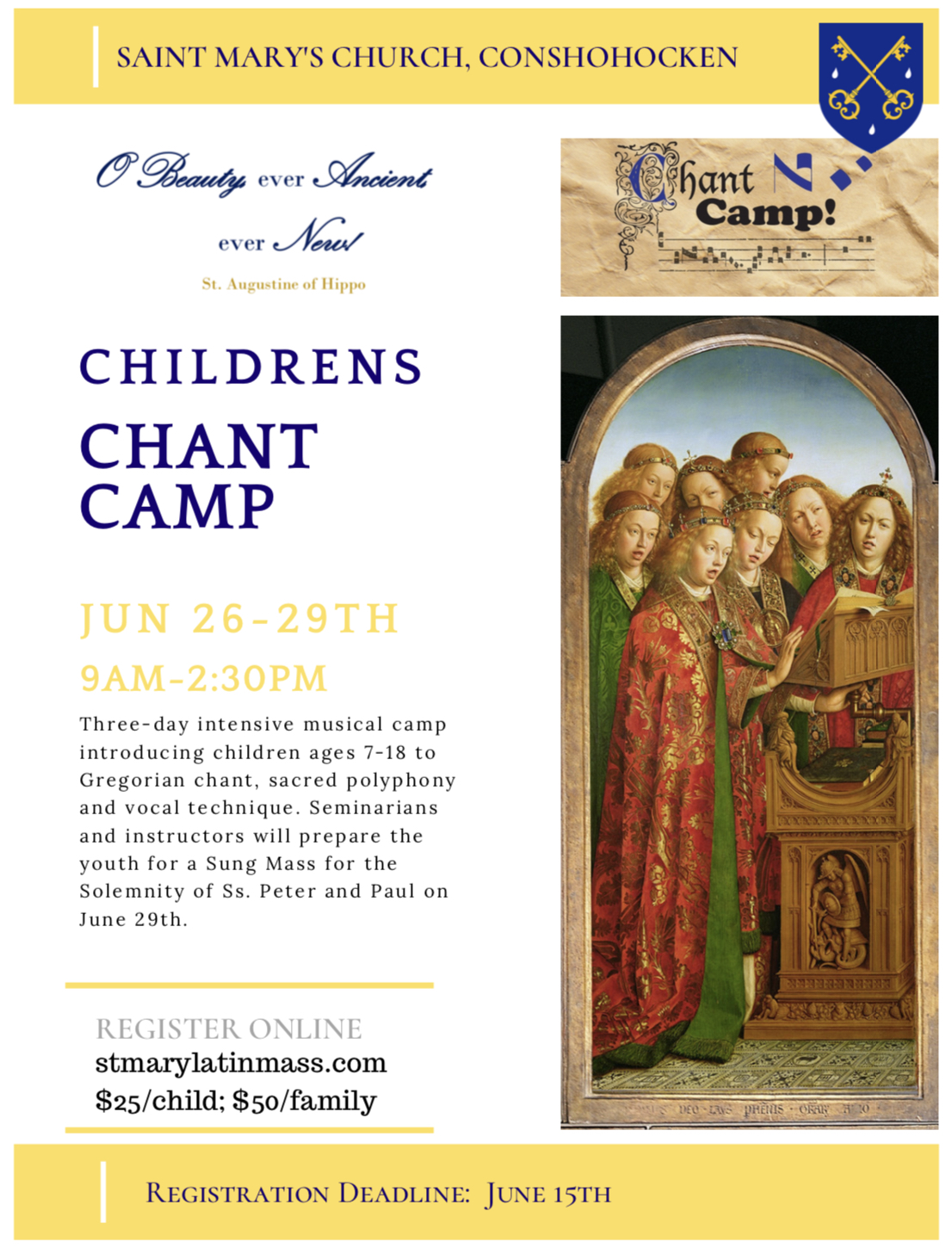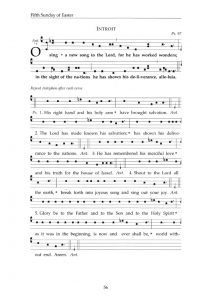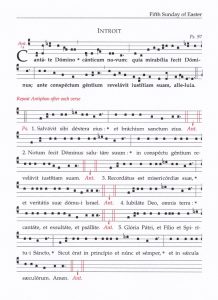Occasionally in classic Latin hymns we find texts that don’t fit the poetic meter perfectly but have an extra syllable, and these are often notated so as to draw attention to the discrepancy, as here (“digitus”) in the Veni Creator Spiritus:

Some choir directors adjust these “hypermetric syllables” to fit the meter: that is, they may “elide” syllables by omitting the vowel of one syllable and combining the rest of that syllable with the next (or the previous one!). For example, in the doxology at the end of a long-meter hymn, the phrase “cum Patre et almo Spiritu” can be sung in eight syllables as “cum Patr-et almo Spiritu”. On the other hand, some choir directors sing these lines exactly as notated, out of a sense of duty to sing the hymn as directed in the church-approved book.
Today I stumbled on this document in the old (1949/1960) Antiphonale Romanum (page 64*), which addresses the concern about what is permitted.
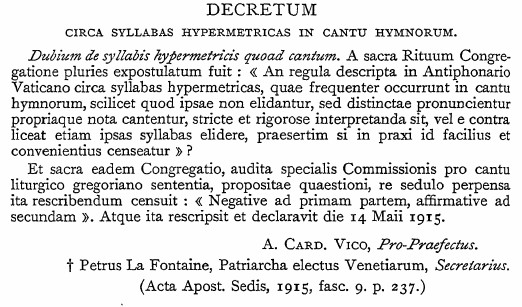
The question addressed to the Congregation of Rites (back in 1915) was whether these lines should be pronounced distinctly and the added notes sung rigorously as indicated in the Antiphonale, or whether it was permitted to elide those syllables; and the answer from the Congregation came back, “Negative to the first part; affirmative to the second”; that is: it is not required to interpret those lines rigorously, and it is permitted to elide the affected syllables.
So when a text occasionally doesn’t conform to the meter of its tune, it’s fine to make it fit: I hope this helps ease any scruples of worried singers.

